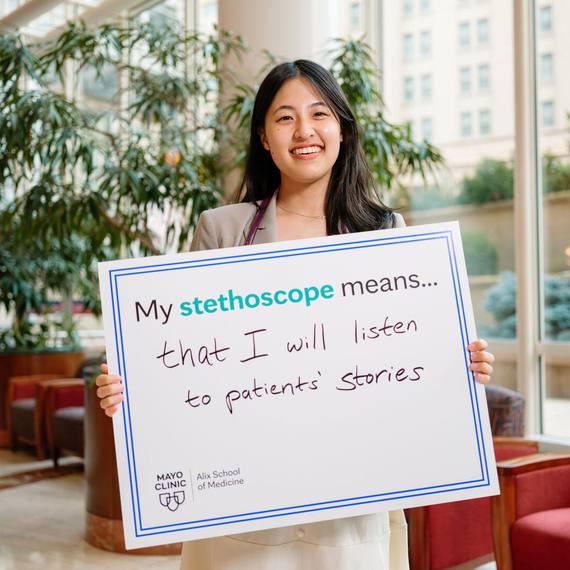-
Arizona
Mayo Clinic in Arizona is the First in the Southwest to Offer New Treatment for Recurrent Glioblastoma Brain Tumors
SCOTTSDALE, Ariz. — Mayo Clinic in Arizona is the first and only clinical center in the Southwest to offer a new treatment that disrupts the growth of recurrent glioblastoma brain tumors.

The new treatment features the NovoTTF-100A System, a portable, noninvasive medical device that affixes to a patient's head and provides continuous electrical pulses targeted to tumor sites throughout the day. The device has been shown to slow and reverse tumor growth by inhibiting mitosis, the process by which cells divide and replicate.
"Glioblastoma is a difficult disease," says Alyx Porter-Umphrey, M.D., neuro-oncologist at Mayo Clinic in Arizona, "and what is exciting is that we're now able to offer a treatment option to patients who have not been able to tolerate other treatments."
Glioblastomas, the most common and aggressive primary brain tumors, have been called grow-and-go tumors. They not only grow rapidly at a given site, they also move rapidly to new sites. Dr. Porter-Umphrey is the first physician in the region to be certified to use the device, which creates a low-intensity, alternating electric field within the tumor that exerts physical forces on electrically charged cellular components. This electrical charge can inhibit the normal mitotic process (cell division) and cause cancer cell death prior to division. In patients with recurrent glioblastoma brain tumors, the treatment has shown effectiveness comparable to active chemotherapies and without many of the debilitating side effects of chemotherapy.
Click here for a video of Dr. Porter-Umphrey talking about the new treatment.
"The brain is such a specialized organ that surgery is not always an option like it is with other tumor types," Dr. Porter says. "As science progresses, we are constantly looking at new ways to diagnose with advanced imagery and molecularly analyze tumors to better tailor treatment, and treatment modalities like TTF will play an increasingly important role." The device was approved by the U.S. Food and Drug Administration in April 2011 for the treatment of recurrent glioblastoma. It is available in the U.S. at centers whose clinical staff has been trained and certified in the use of the system.
Media Contact: Jim McVeigh, Public Affairs, 480-301-4222







